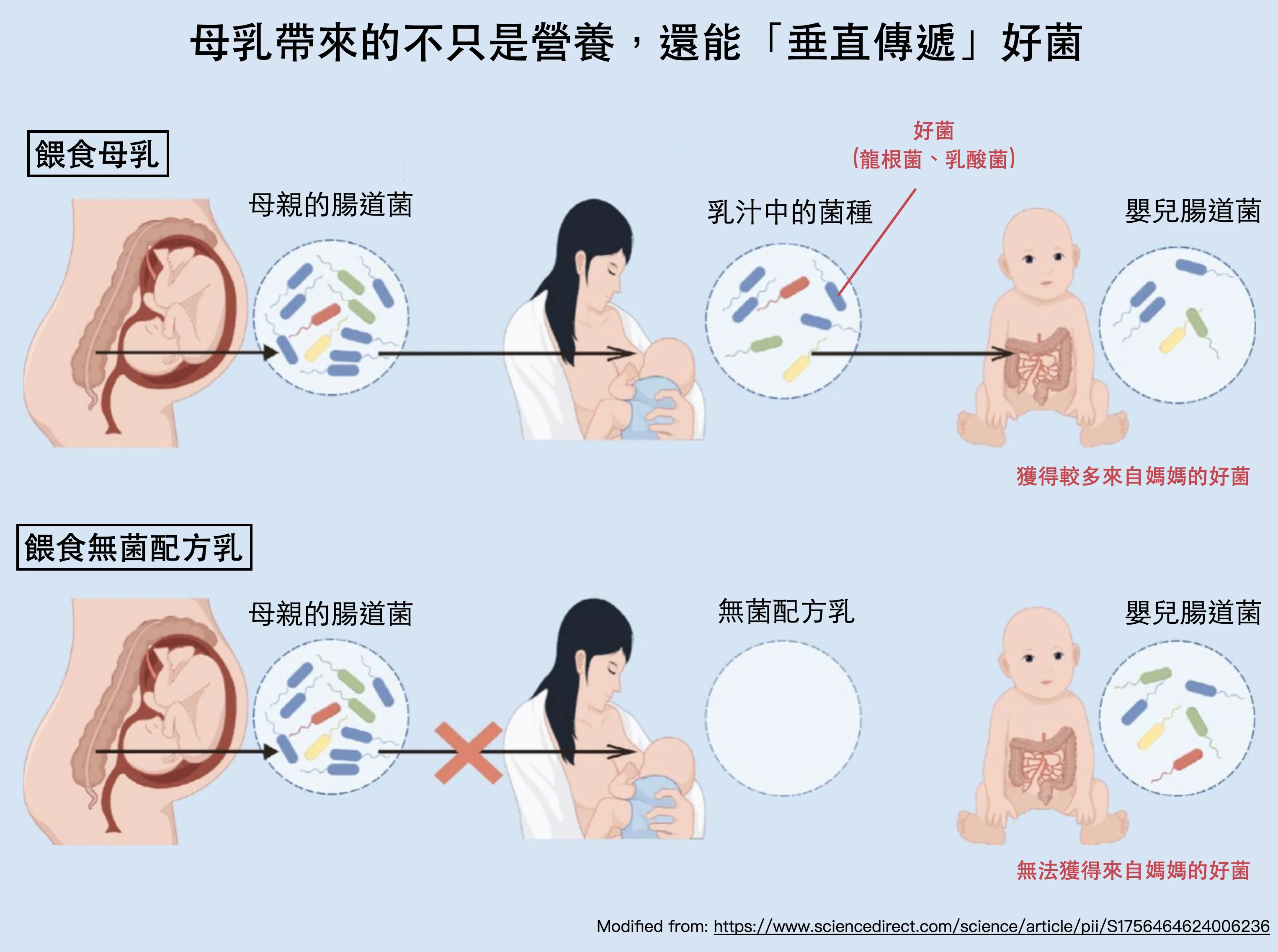
Breast milk vs. formula: Here's the key to breast milk's success!
In the world of new parents,Breast milk vs. formulaThis topic has always been a hot topic. Regardless of the method, the core goal remains the same: to ensure that babies grow up healthy and happy. The difference lies in the fact that breast milk, in helping babies establish their intestinal flora, utilizes some "nature's ingenuity," while formula relies on scientific advancements to catch up.
Let's take a look at what secret weapons breast milk holds, and how formula has made such a huge leap in recent years!
The "Hidden Gift" in Breast Milk: Good Bacteria Passed Directly to Your Baby
Breast milk is not sterile. Studies have found that theBifidobacterium spp., Lactobacillus spp. Can pass throughentero-mammary pathway, "travels" all the way into breast milk and is then drunk by the baby.
In other words, while drinking breast milk, babies are also receiving "good bacteria seeds" from their mothers. These probiotics will settle and multiply in the tiny intestines, helping to lay the foundation for intestinal health.

Human milk oligosaccharides (HMOs) in breast milk: nutrients for good bacteria
In addition to the strains themselves, breast milk also contains about 10–12 g/L of human milk oligosaccharides (HMOs).)HMOs are not digested directly by infants but arePrebiotics, selectively feed the probiotics in the intestine (such as Bifidobacterium and Lactobacillus) and inhibit the growth of bad bacteria.
In other words, breast milk not only provides the "seeds of good bacteria," but also creates the "fertile soil" that helps these good bacteria thrive and further promotes the maturation of intestinal immunity. This is a mechanism unique to breast milk that is currently difficult to fully replicate with formula.
The importance of establishing intestinal flora in babies
The human intestinal flora matures at about 3 years old, that is,The early flora established before the age of three has a deep-rooted influenceAfter birth, a baby's intestines are like a blank slate, gradually becoming "colonized" by diverse microorganisms. These early colonizers not only aid digestion but also communicate with the immune system (remember, the intestine is the body's largest immune organ), training immune cells to distinguish between "enemy" and "self," reducing the risk of allergies and autoimmune diseases. Furthermore, a healthy intestinal flora can regulate energy metabolism, impacting the development of chronic diseases such as obesity and diabetes.
in other words,The early establishment of intestinal flora is like laying a solid foundation at the starting point of life, which determines whether the body can maintain a stable and resilient state of health in the future.
As mentioned earlier, breast milk not only contains probiotics from the mother, but also prebiotics such as human milk oligosaccharides, which can regulate the intestinal environment and allow beneficial Bifidobacterium and lactic acid bacteria to settle down. These two bacteria are beneficial bacteria that can regulate metabolism and immune function at the same time.Many studies have found that breastfed babies are less likely to develop obesity, allergies, asthma, and autoimmune diseases in the future.
Therefore, breast milk is the best gift that a mother gives to her baby after millions of years of evolution.

The evolution of formula
However, mothers who cannot breastfeed do not need to worry! With the advancement of technology, modern formula milk is no longer what it used to be. In recent years, many formula milks have begun to addHMOs with specific structures, and even joinedProbiotics.
Clinical studies have shown that this design can help adjust the baby's intestinal flora and develop in the direction of "beneficial bacteria advantage". Some data also show that it has a positive effect on intestinal mucosal immunity. Although there are still some gaps compared with breast milk, it has indeedIt significantly shortens the gap in intestinal health between breast milk and formula milk.
Therefore, modern formula milk can be said to be "standing on the shoulders of science" and continuing to evolve, striving to provide babies with care that is closer to breast milk.
Conclusion: Breast Milk vs. Formula: Which One Should You Choose?
Let’s make a brief summary:
- breast milk: The naturally evolved golden formula provides nutrition, probiotics, HMOs, and antibodies to help babies build intestinal and immune foundations.
- formula milk: With the continuous evolution of technology, the addition of HMO and probiotics can provide babies with more intestinal health support and is a safe and reliable alternative option.
In fact, whether it is breast milk or formula milk,A baby’s intestinal health does not come overnight, and the love of parents is the greatest nutrition for the baby.Breastfeeding is of course the best option, but if you face real-life pressures (work, insufficient milk supply, etc.), choosing formula milk that contains added HMOs and probiotics and is backed by scientific evidence is also the right decision!



